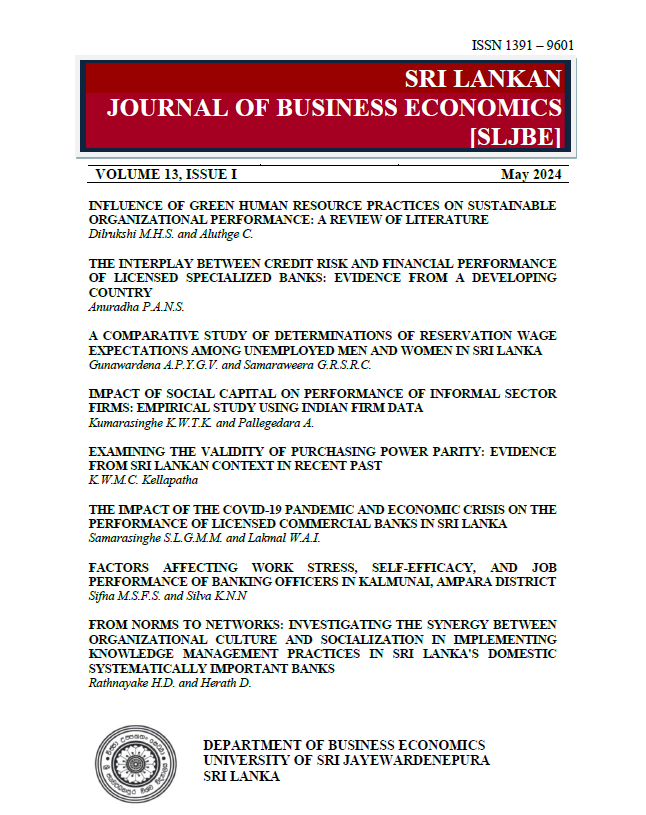A COMPARATIVE STUDY OF DETERMINATIONS OF RESERVATION WAGE EXPECTATIONS AMONG UNEMPLOYED MEN AND WOMEN IN SRI LANKA
DOI:
https://doi.org/10.31357/sljbe.v13.7505Abstract
The "reservation wage" concept indicates the minimum compensation a person is willing to accept when seeking employment. This study aims to determine how reservation wage expectations differ between unemployed men and women in Sri Lanka. This analysis used secondary data extracted from the Sri Lanka Labour Force Survey (2021), which was conducted by the Department of Census and Statistics, and encompasses a sample size of 1,567 total unemployed, comprising 739 unemployed males and 828 unemployed females. A semi-log model was applied separately to the unemployed men, the unemployed women and the total unemployed to achieve the study's objective. The results indicated that gender significantly influences reservation wage expectations among unemployed men and women. Compared with women, unemployed men have a higher reservation wage expectation. Noteworthy variables, including household size, age, and unemployment duration, exhibit varying degrees of insignificance in shaping reservation wage expectations for both genders. Finally, this study concluded that the reservation wage expectations among unemployed men and women in Sri Lanka are significantly affected by various demographic, household socio-economic and regional geographical factors. This study provides valuable insights for policymakers to foster gender equality and labour market inclusivity to reduce the gender gap in Sri Lanka.

